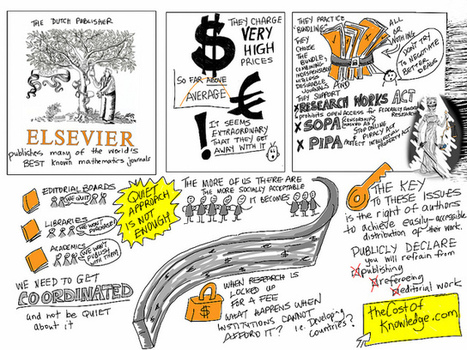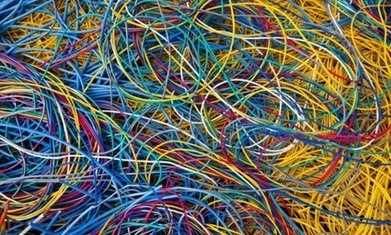This post is from Jan Velterop, a long-time science publisher, who is one of earliest proponents of "open access" publishing. The following is actually a message he posted to an open access mailing list, which Mike Taylor republished. We asked if we, too, could republish it, and Velterop told us (as we tell people who ask us) that the work should be considered in the public domain, and to do what we want with it.
I've been following this discussion with increasing bemusement. Frankly, it's getting ridiculous, at least in my humble opinion. A discussion such as this one about licensing and copyright only serves to demonstrate that copyright, once conceived as a way to stimulate and enable science and the arts, has degenerated into a way to frustrate, derange and debilitate knowledge exchange.
I'm not the first one to point out that absolutely anything, under any copyright license or none, could be abused for evil purposes or, in more mild circumstances, lead to misunderstandings and accidental abuse. I agree with all those who said it.
The issue here is what science and scientific results stand for. Their purpose is emphatically not "to be copyrightable items." Copyright, invented to combat commercial abuse, has become a means of commercial abuse. The purpose of science and scientific results is to enrich the world's knowledge. Any commercial advantage – appropriate for industrially funded research – can be had by 1) keeping results secret (i.e. not publishing them), or 2) getting a patent. Science, particularly modern science, is nothing without a liberal exchange of ideas and information.
Ideally, scientific publications are not copyrightable at all, and community standards take care of proper acknowledgement. We don't live in an ideal world, so we have to get as close as we can to that ideal, and that is by ameliorating the insidious pernicious effects of copyright with CC-Zero and CC-BY licences.
Click headline to read more--
Via
Chuck Sherwood, Former Senior Associate, TeleDimensions, Inc



 Your new post is loading...
Your new post is loading...














